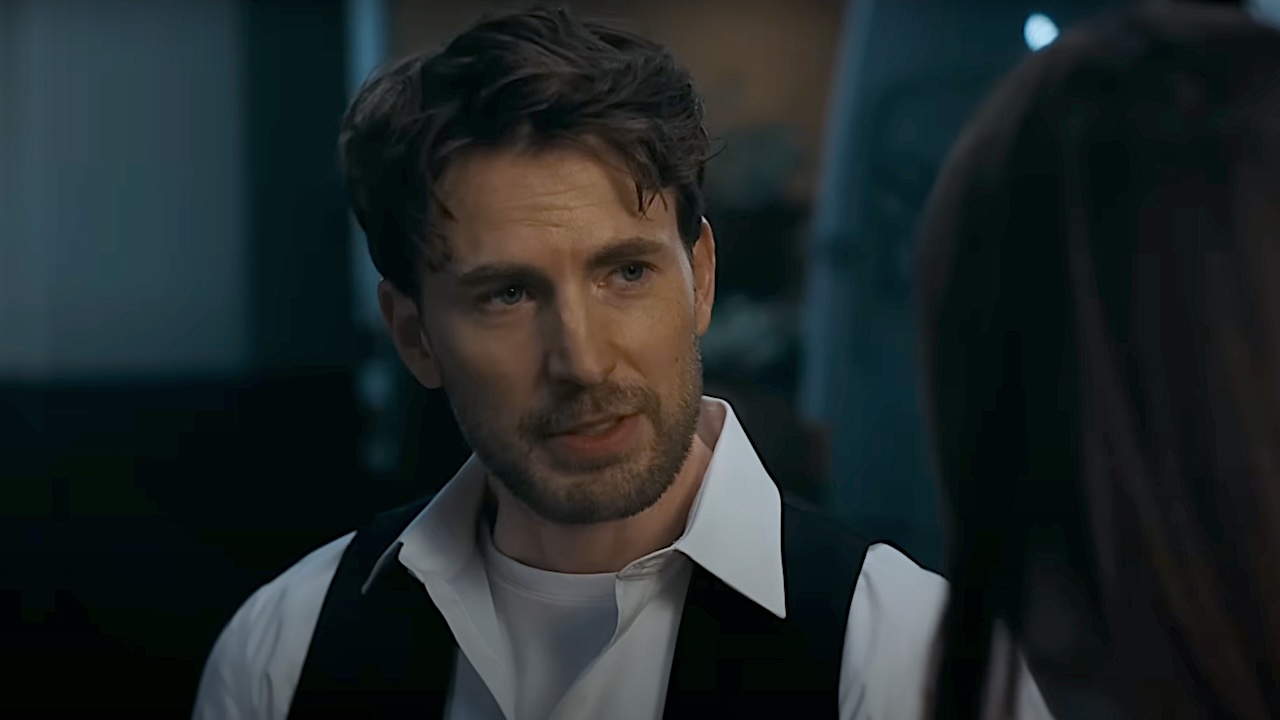Materialists Director Responds To Fans Who Think Chris Evans’ Character Represents ‘Broke Man Propaganda,’ And I Think Her Take Is Compelling
Celine Song weighed in on the major Materialists' criticism.

Your Daily Blend of Entertainment News
You are now subscribed
Your newsletter sign-up was successful
Spoilers for the end of Materialists are ahead.
Of the projects on the 2025 movie schedule, few have sparked the debate that Celine Song’s latest romantic drama, Materialists, has. The film follows Dakota Johnson’s Lucy, a matchmaker who embarks on her own relationship journey with the “perfect on paper” Harry, who is played by Pedro Pascal. This relationship becomes complicated as she also decides to foster a friendship with her ex-boyfriend John, who is a struggling actor played by Chris Evans. Lucy ends up choosing John over Harry, which fans were vocally annoyed about due to his financial struggles. However, the filmmaker has a different opinion on the ending of Materialists, and it was incredibly thoughtful.
Celine Song was asked to comment on some of the criticisms of Materialists, including some snarky ones on Letterboxd, during an interview with Refinery29. Many people have been calling the film “broke man propaganda” for essentially promoting a relationship with someone of a lower socio-economic class at a time when the economy is arguably struggling, as this might not be financially wise.
While these reviews have been infused with humor, Song expressed that she doesn’t find this commentary very funny at all, because it misrepresents feminist ideas. She explained:
It doesn’t make me laugh, because it’s really disappointing to me. I think that there is a very real confusion about feminism and in the history of feminism. I think because of intersectionality, so much of feminism has been about anti-corporate and anti-capitalist. And, of course, it was always on the forefront of fighting classism, so I’m concerned about the way that we talk about people who are poor.
Essentially, Song believes that limiting the character of John to just his socioeconomic status strips him of his person. He is a fully fleshed out character, with a lot of love for and a connection to Lucy, which Harry lacks despite being more wealthy and established.
Song intended for the film to be told from a feminist perspective, which emphasises the value of the person, and she has historically fought against systems of oppression, including classism. She continued to comment on this idea, saying that to reduce the John character to being a “broke man” diminishes him. She said:
I think the thing that’s very important to me is to stress that poverty’s not the fault of the poor. And I think that given that, it’s very brutal. I find it very cruel to talk about John as a character, who loves Lucy and who is a beautiful character being played beautifully by Chris and to talk about him in such cruel terms as ‘broke boy’ or ‘broke man.’ I think there is something about that, the classism of that, kind of like hatred of poverty, hatred of poor people. [And] again, it’s not their fault that they’re poor.
There is a lot of truth to what Song is saying, especially if you consider why John is poor in the film. He is hardworking, but also has chosen a career in the arts, which has become less and less of a lucrative field in modern society, which places less value on the arts and cultural contribution. The point of the film is that Lucy decides to marry John at City Hall because of who John is as a person, and her emotional connection to him, rather than what he is able to provide for her. This doesn’t promote “being broke” but rather partnerships based on love rather than opportunity.
Your Daily Blend of Entertainment News
I think it's admirable and truly thoughtful for Song to defend her film in such a way, putting it more in a cultural context. However, the alternative argument towards the message in Materialists is still quite compelling. While we can reduce it to snarky Letterboxd reviews meant to be humorous, there is some truth to recognizing John’s faults. He isn’t just “poor,” he also lacks a certain maturity that lands him in certain situations.
Audiences have pointed out that deciding to take a car to dinner when he can’t afford to park it is a result of poor planning. And maybe his flaw isn’t that he’s a cater-waiter with roommates, it’s that he’s a cater-waiter with roommates that make his living situation unlivable, and he hasn’t sought an alternative option in years.
It’s hard for some not to put Harry on a pedestal when John isn’t living up to the occasion, in many ways. From this perspective, it makes sense why some critics called Materialists cynical.
However, I also completely see the point the director was making.
Whatever side of the debate you land on, the fact that Celine Song has made a movie that has kept people talking is an achievement in its own right, showing it’s more than just a typical rom-com. You can decide how you feel about Lucy’s two dashing romantic prospects now, as Materialists is currently available to rent or purchase on Amazon.

Writer, podcaster, CinemaBlend contributor, film and television nerd, enthusiastic person. Hoping to bring undying passion for storytelling to CinemaBlend.
You must confirm your public display name before commenting
Please logout and then login again, you will then be prompted to enter your display name.
